Australia
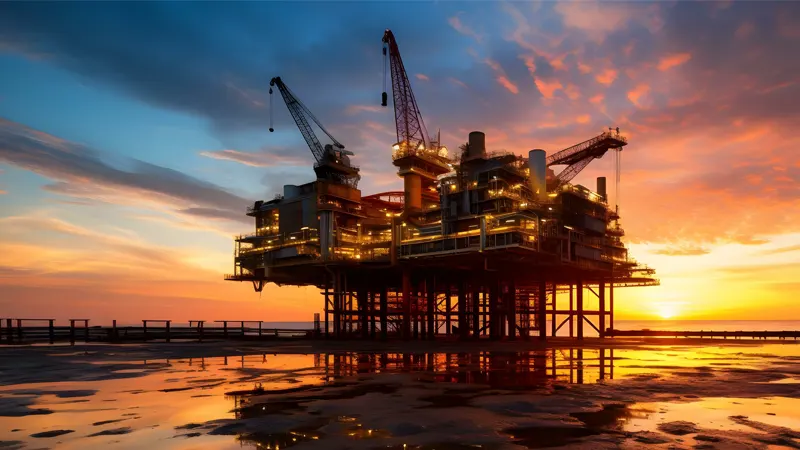
- Region: Australia
- Topics: Decommissioning
- Date: Jan, 2025

The Maritime Union of Australia (MUA) has expressed its support for the establishment of the Offshore Decommissioning Directorate by the Australian Federal Government. This initiative highlights the government's focus on offshore oil and gas decommissioning opportunities over the coming years.
The Union remains committed to advocating for a comprehensive roadmap that ensures full and proper decommissioning, emphasizing high-quality Australian jobs, workplace safety, and environmental care as part of a just transition from hydrocarbon industries to offshore renewable energy projects.
Thomas Mayo, Assistant National Secretary of the MUA, stated, “Decommissioning is well underway, yet offshore workers continue to face unacceptable hazards, including poorly maintained rigs, fatigue, and hydrocarbon spills. The MUA is steadfast in our commitment to holding government and industry accountable for improving safety, environmental protections, and conditions on the job.”
He further emphasised the need for action, adding, “The release of the Roadmap underscores the critical role the MUA has played in shaping this initiative, and now is a critical time to address several significant shortcomings. While we welcome the establishment of a Decommissioning Directorate, the roadmap falls short of the robust framework our members deserve. The lack of concrete commitments, such as industry-funded infrastructure, checks and balances such as independent verification of completed work, and strengthened worker safety protections, is concerning.”
Mayo concluded, “This moment cannot be overstated. Our public response is a clear signal to all stakeholders – government, industry, and our members – that the MUA is increasingly dedicating attention and resources commensurate with the significance of this opportunity. We call on the Federal Government to heed the expertise of the decommissioning workforce and adopt the Union’s upcoming further recommendations to the Directorate. Complacency is not an option.”
The MUA's engagement underscores the importance of ensuring offshore decommissioning is conducted to the highest standards, safeguarding both workers and the environment.
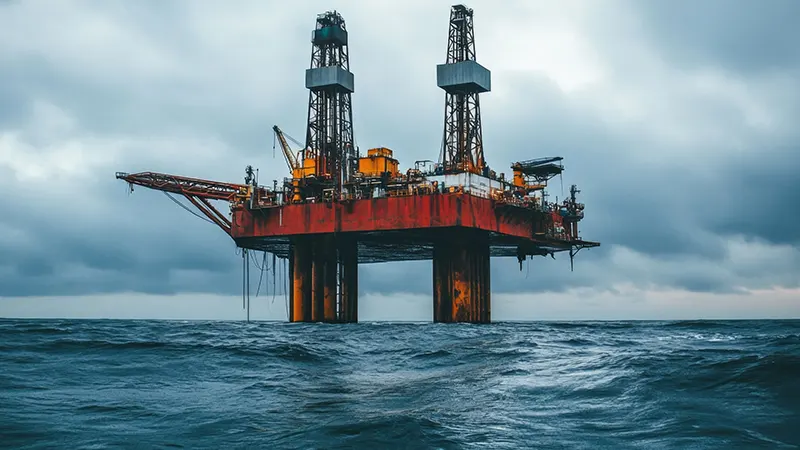
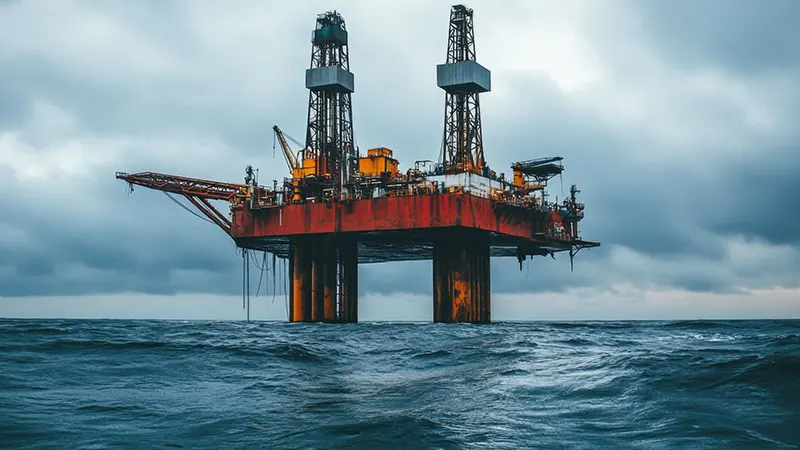
The presence of existing offshore industries positions Australia well to enhance its decommissioning industry.
For decommissioning activities to be carried out efficiently, an experienced workforce, the right vessels available at the right time, and a culture of safety and environmental stewardship are key requirements.
Workforce
Australia’s domestic workforce exhibits extensive skill and experience in the oil and gas industry. This means that a majority of them can be re-deployed and re-skilled for decommissioning projects supporting Australia’s energy transition. However, the emergence of the renewable sector makes attracting and retaining a workforce significantly challenging.
Vessels
In Australia, vessels are not hosted but instead imported for heavy offshore decommissioning. While the local availability for heavy lift and specialist vessels don’t appear to be a strategic opportunity, the domestic workforce can provide crew and support for these activities.
Infrastructure
Offshore decommissioning will mostly be concentrated in south-east and north-west Australia, with the south-east region hosting significant offshore wind generation in the future. Offshore renewables construction could increase competition for infrastructure and capability, including ports, which requires careful management and coordination.
Waste management and recycling
Australia’s decommissioning industry is well-positioned, with the presence of a domestic recycling industry playing a key role in the waste management phase of offshore decommissioning. However, there are some critical knowledge gaps that need to be addressed. These include innovation on the impact of contaminants on the environment and ecosystems, possibilities to develop new recycling pathways and technologies, and more efficient cleaning and waste management processes.
Research capabilities
Australia’s availability of innovative products and technologies creates an opportunity for global exports to other decommissioning markets. The ability to create new innovative products and services makes Australia a significant contributor to the global decommissioning market.
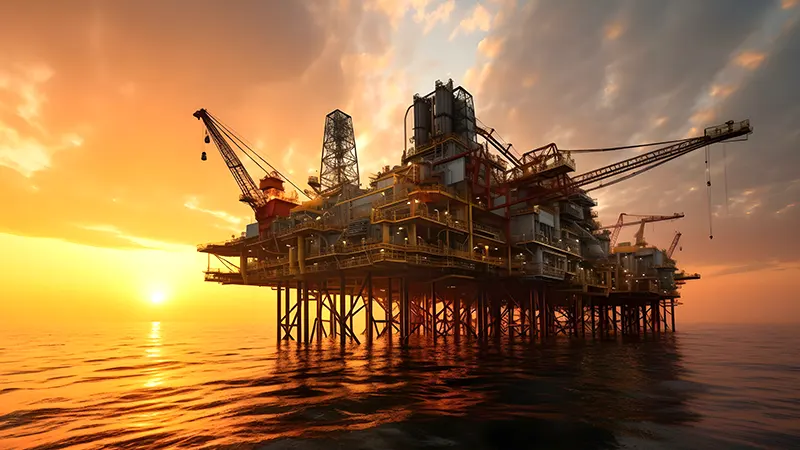
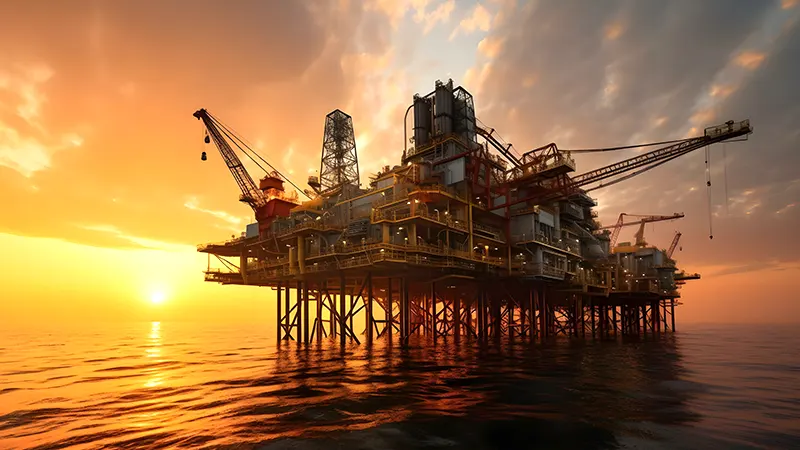
The Centre of Decommissioning Australia (CODA) on 10 December, celebrated three years of serving as Australia’s peak body for decommissioning
Over this period, CODA has managed to bring together industry stakeholders from across the entire supply chain and grown to become a massive partner organisation. CODA has launched numerous initiatives, demonstrating its commitment to advancing the industry by addressing key challenges, developing innovative solutions, and promoting best practices. Besides advancing industry knowledge, these initiatives have also highlighted the importance of collaboration in addressing the complexities involved in decommissioning.
“Reaching our third anniversary is a proud moment for CODA. It reflects not only the strength of our partnerships but also the dedication and collaborative spirit of everyone involved in shaping the future of decommissioning in Australia," said CEO of CODA, Francis Norman. "The work we’ve achieved together—delivering key studies, building industry resources, and fostering collaboration—has set a solid foundation for continued progress. I want to thank all our partners and the Jobs, Tourism, Science and Innovation department of the WA Government for their invaluable support. Here’s to many more milestones ahead.”
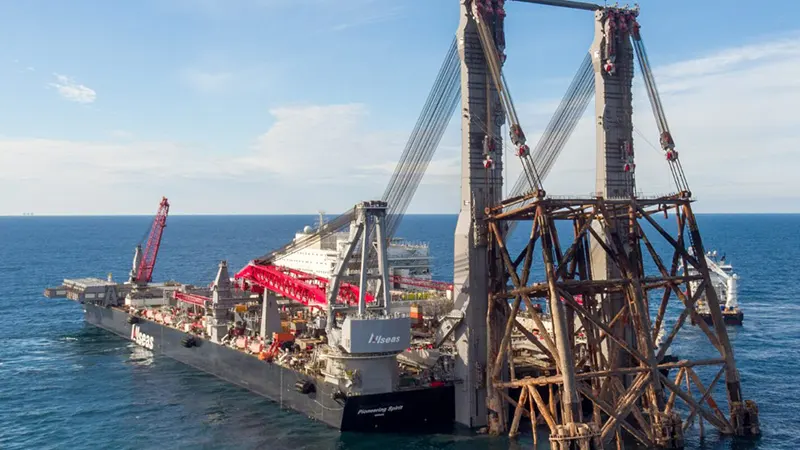
- Region: Australia
- Topics: Decommissioning
- Date: Dec, 2024
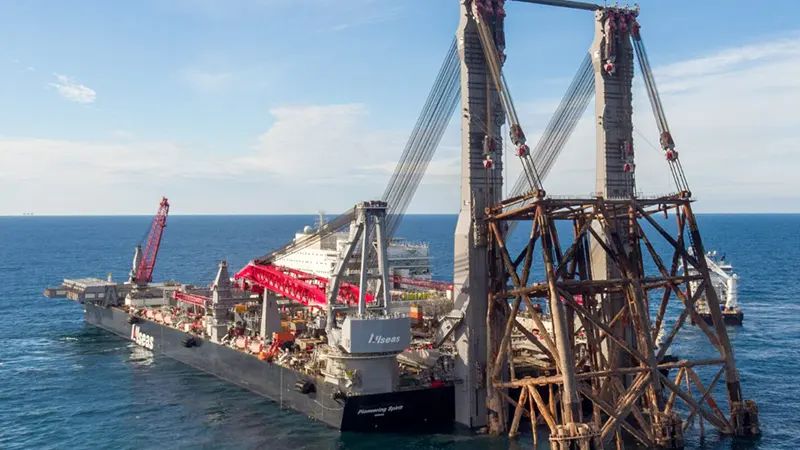 Planning and preparation are underway for Australia’s largest offshore decommissioning project. Esso Australia Pty Ltd, a subsidiary of ExxonMobil Australia, has awarded Allseas the contract to dismantle up to 12 retired platforms from the Gippsland Basin in the Bass Strait.
Planning and preparation are underway for Australia’s largest offshore decommissioning project. Esso Australia Pty Ltd, a subsidiary of ExxonMobil Australia, has awarded Allseas the contract to dismantle up to 12 retired platforms from the Gippsland Basin in the Bass Strait.
The platforms, with a combined weight of approximately 60,000 tonnes, mark a historic milestone for offshore operations in the region.
For the first time, Pioneering Spirit will bring its revolutionary single-lift technology to Australian waters. This cutting-edge capability enables the removal of entire offshore structures – both topsides and jackets – in a single lift, allowing the massive scope of work to be completed within just a few months.
“This landmark decommissioning project represents a significant milestone for Allseas in Australia,” said Evert van Herel, General Manager of Allseas Australia. “Over the past 20 years, we’ve built a strong track record delivering subsea pipelay and construction services for major greenfield projects in these waters. It’s an honour to now bring our expertise to the first removal of platforms of this scale from Australian waters.”
The ambitious timeline includes the removal of up to 12 topsides and 11 steel jackets during a 3–4-month campaign set to begin in late 2027. Once removed, the structures will be loaded onto barges or vessels for transport to the Barry Beach Marine Terminal in Victoria, where they will be dismantled and recycled by an onshore contractor.
The engineering and project management work is being led from Perth and Melbourne, with additional support from Allseas’ offices in Delft and Kuala Lumpur.
“This historic project gives us an opportunity to showcase the capability of our single-lift technology in challenging environments like the Bass Strait,” added Evert. “We’re very much looking forward to working with Esso Australia to make this a successful project and thank them for their trust in Allseas to carry out this landmark project!”
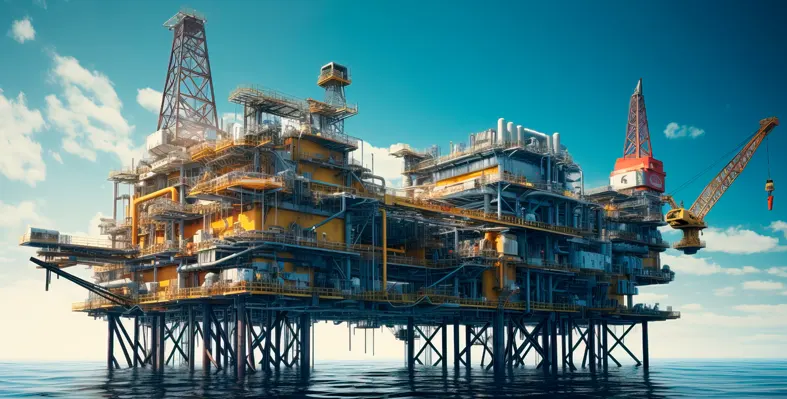
- Region: Australia
- Topics: Decommissioning
- Date: Dec, 2024
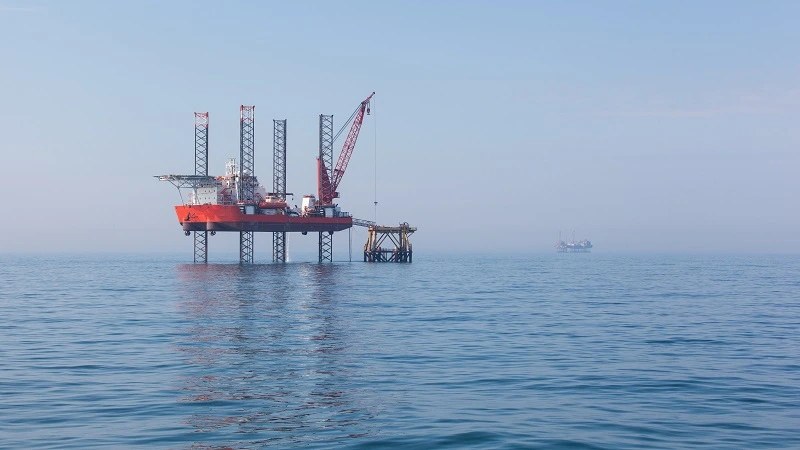 With nearly US$60bn expected to be invested into decommissioning offshore infrastructure over the next three to five decades, the Australian government has formed an Offshore Decommissioning Roadmap aimed at boosting the growth of the country's decommissioning industry.
With nearly US$60bn expected to be invested into decommissioning offshore infrastructure over the next three to five decades, the Australian government has formed an Offshore Decommissioning Roadmap aimed at boosting the growth of the country's decommissioning industry.
Growing Australia's domestic decommissioning industry not only benefits the country's economy and environment, it also plays a key role in Australia's transition to net zero.
The roadmap maximises the amount of decommissioning activity that happens domestically and ensures that planned activities are taking place with improved efficiency and transparency. It also sets out a path to grow Australia's industrial capability in the management of decommissioning and materials, create safe, top-tier jobs to service a thriving decommissioning industry, all while ensuring that the industry undertakes its decommissioning obligations in a safe, timely and environmentally responsible way.
Key areas of opportunity
The roadmap focuses on five main areas of opportunity including the establishment of a regulatory framework that safeguards the environment while attracting investment, fostering meaningful partnerships with First Nations people and local communities, and maximising infrastructure opportunities and availability. Moreover, it encourages job creation and investment in the recycling and waste management sectors while also developing an offshore decommissioning workforce that is safe, skilled and diverse.
To support the roadmap, the Offshore Decommissioning Directorate was formed this month to encourage collaboration among all parties involved, improve transparency across the pipeline, be a trusted partner and advisor on policy matters, strengthen regulatory frameworks and ensure that industry activities complement the Future Made in Australia agenda.
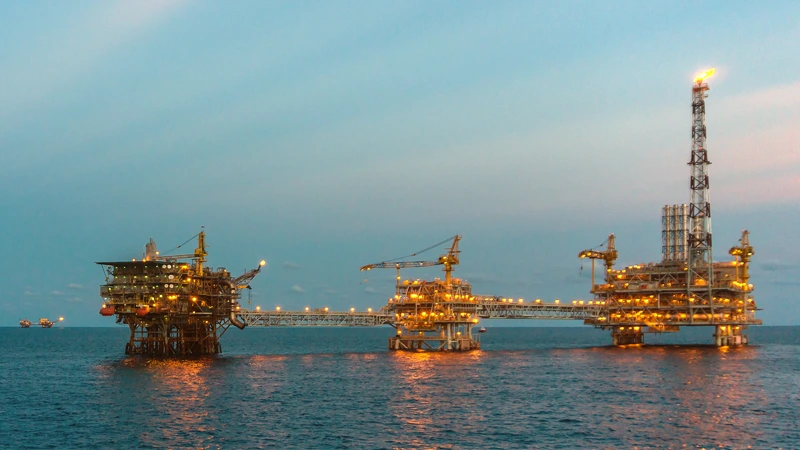

The United Kingdom and Australia have formed a partnership agreement to strengthen cooperation on offshore oil and gas decommissioning.
Announced in a joint statement, the governments of the UK and Australia have sought to establish the partnership that builds on the recently-signed Australia-UK Climate and Energy Partnership. It will combine the 40 years of UK expertise in the North Sea with the blossoming decommissioning services market in Australia.
The agreement was signed by Australian Minister for Resources and Minister for Northern Australia, Madeleine King, and the UK Minister for Services, Small Businesses and Exports, Gareth Thomas. Together, they agreed to encourage cooperation in areas including supply chains, knowledge and skills, regulations, and financing while supporting engagement between UK and Australian businesses engaged in decommissioning.
Furthermore, it will establish a working group comprising industry representatives, academic partners, and regulatory bodies to develop a collaborative framework and partnership programme. This will identify viable decommissioning projects that would benefit from cooperation, delivering these in accordance with international quality and sustainability standards.
Through the identification of capability, equipment gaps and strengths, the group will also facilitate the sharing of decommissioning expertise between the two countries with knowledge transfer opportunities.
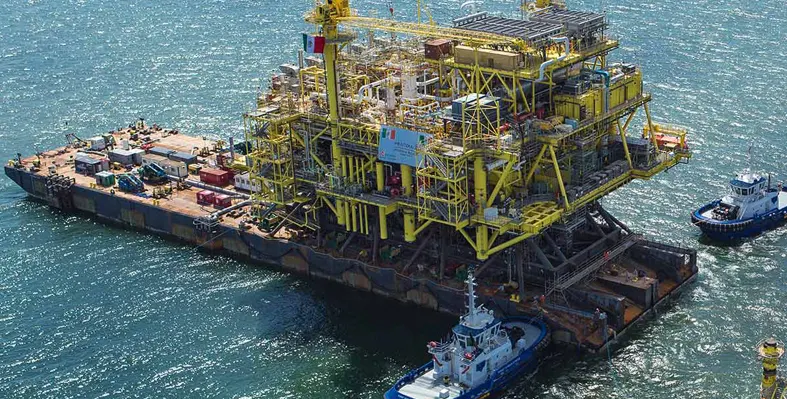
- Region: Australia
- Topics: Decommissioning
- Date: Nov, 2024
 McDermott has been awarded a large engineering, procurement, removal and disposal (EPRD) contract by Santos for the decommissioning of the Harriet Alpha platform and associated infrastructure, located offshore Western Australia.
McDermott has been awarded a large engineering, procurement, removal and disposal (EPRD) contract by Santos for the decommissioning of the Harriet Alpha platform and associated infrastructure, located offshore Western Australia.
The contract follows the successful execution of the Campbell decommissioning project for Santos in Australia. Part of the Harriet Joint Venture (HJV) assets, the Harriet Alpha platform is one of the largest facilities slated for decommissioning.
McDermott will provide EPRD services, including engineering, procurement and fabrication of specialised equipment, as well as the removal and transportation of the platform structure to an onshore facility for dismantling and disposal. The contract scope also includes the removal, transportation and disposal of a flare tower, exploration well and subsea development system comprising of two subsea template wells.
Largest decommissioning project
"This is our largest decommissioning project to date, reflecting our continued commitment to delivering bespoke solutions for the timely, safe, and environmentally responsible removal of infrastructure at the end of its operational life cycle," said Mahesh Swaminathan, McDermott's Senior Vice President, Subsea and Floating Facilities. "McDermott's growing decommissioning portfolio in Australia also underscores the commitment we share to continue supporting circularity efforts in a lower carbon economy."
Project management and engineering will be executed by McDermott's team in Perth, Australia, with support from Batam, Indonesia and Kuala Lumpur, Malaysia.

- Region: Australia
- Topics: Decommissioning
- Date: October, 2024
 With a commitment to recycling the Northern Endeavour floating production storage and offtake (FPSO) vessel in a safe and environmentally sound manner while achieving value for money, the Australian Government has released a request for tender (RFT) to find a supplier to recycle the vessel.
With a commitment to recycling the Northern Endeavour floating production storage and offtake (FPSO) vessel in a safe and environmentally sound manner while achieving value for money, the Australian Government has released a request for tender (RFT) to find a supplier to recycle the vessel.
As works are underway to prepare the FPSO for a safe disconnection from the subsea infrastructure, the Government is seeking proposals from organisations to recycle the FPSO and manage the disposal of hazardous waste. This also includes the recycling of any furniture, fixtures, equipment, victuals or other on-board items. The FPSO will be towed to the ship recycling facility of the successful tenderer.
All FPSO recycling activities must comply with relevant regulatory requirements. This includes relevant safety, environmental protection and maritime regulations across international conventions and agreements, domestic legislation and regulations, and state legislation and regulations.
Interested parties must ensure registration to submit proposals through the AusTender website only. All requirements must be addressed in the RFT documents which are accessible on AusTender.
The Department of Industry, Science and Resources is holding industry briefing sessions for interested parties. There will be three separate briefings focussing on the commercial, financial and technical aspects of the RFT. To register for the briefings, participants can email the contact officer at
Submissions of the RFTs will close on 29 November 2024.
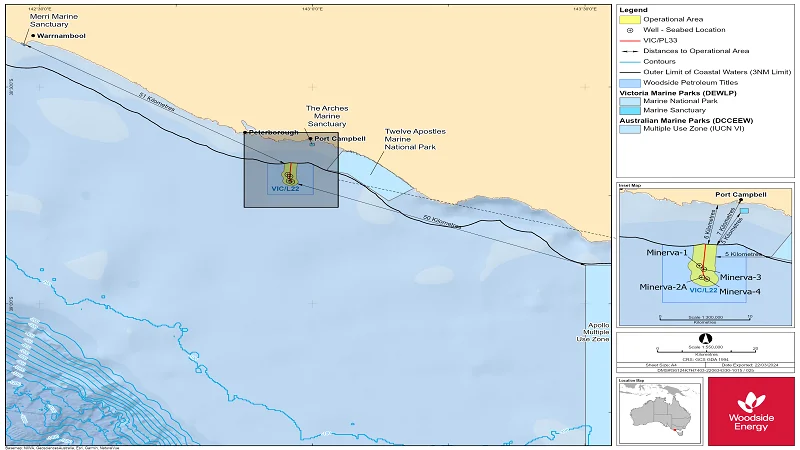
- Region: Australia
- Topics: Decommissioning
- Date: Oct, 2024

The National Offshore Petroleum Safety and Environmental Management Authority (NOPSEMA), the Australian Government’s offshore energy regulator responsible for health and safety, well integrity and environmental management for offshore oil and gas, has accepted Woodside Energy’s plans to decommission the Minerva Field.
The field, previously operated by BHP Petroleum, is located in Commonwealth waters with the wells laying approximately 11 km southwest of Port Campbell in water depths of approximately 50-60 m. Woodside plans to remove all subsea infrastructure and equipment from the seabed associated with the Minerva development. According to NOPSEMA, activities covered by the decommissioning include:
• Ongoing field management activities (inspection and monitoring) for the Minerva subsea and well infrastructure until decommissioning;
• Removal of the Minerva gas pipeline bundle in Commonwealth waters. The pipeline comprises of approximately 4.9 km of 10-inch concrete coated rigid-steel flowline, bunded with an electro hydraulic umbilical and two 2-inch steel chemical injection lines and stabilisation materials;
• Removal of Minerva subsea infrastructure within VIC-L22 in Commonwealth Waters comprising of five inline pipeline structures, five tie-in spools, and associated equipment and stabilisation material.
Equipment removal activities are planned to commence as early as Q4 2024 and require approximately three to five months, subject to vessel availability and weather constraints.
The plans for the decommissioning were submitted to NOPSEMA earlier this year. Click here to learn more.
More Articles …
Page 1 of 9
Copyright © 2024 Offshore Network


